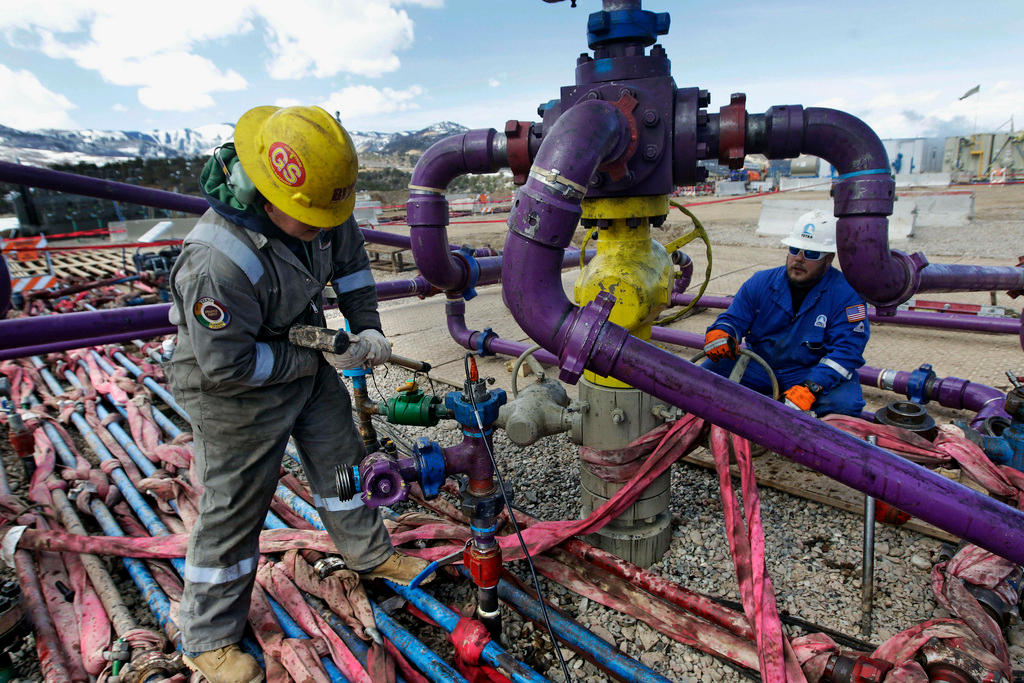
Big data key for commodity traders’ future

The world’s biggest commodity traders need to invest heavily in big data and technology if they are to arrest the relentless erosion of profit margins and recapture their information edge over rivals.
Oliver Wyman, one of the few consultancies to track the performance of the largely private industry, forecast in a report that profit margins could fall by another 15% to less than $30 billion (CHF29.8 billion) by 2025, continuing a trend that has already weighed on traders such as Trafigura and Vitol.

Gross trading margins – the amount made on trades before deducting costs such as tax, salaries and bonuses – have already dropped by 20% to $35 billion since their recent peak in 2015 amid fierce competition and more widely available access to market intelligence.
Roland Rechtsteiner, a partner at Oliver Wyman and co-author of the report, said that after growing trading volumes aggressively between 2014 and 2017 to offset margin erosion, the industry now needed to prioritise boosting its analytical capabilities.
“The industry is maturing after a period of rapid growth, but it is also facing big changes ahead,” said Rechtsteiner. “All commodity trading firms will have to review their business models.”
Oliver Wyman, which is advised by Trafigura co-founder Graham Sharp, said the trading houses needed to invest in sophisticated analytical systems and hire data scientists to allow them to draw valuable insights from the reams of data generated by their global network of ports, warehouses and storage terminals.
That will require companies to revamp their operating models and experiment with large-scale pilot programmes to discover new trading strategies.
“Historically commodity trading was all about market intelligence but over the past decade data has been socialised. It’s omnipresent and available for everyone,” said Rechtsteiner.
“Predictive analytics provides commodity traders with the opportunity to regain their information edge. But they will have to invest quite significantly. You need to have deep pockets.”
Yet to be convinced
The publication of the Oliver Wyman report comes as the world’s biggest commodity traders gather in Lausanne for the eighth FT Commodities Global Summit.
The conclusions of the report are likely to be hotly debated by senior industry executives, many of whom are yet to be convinced that employing armies of data scientists will bolster profits. They see cost-cutting, new markets and providing structured finance deals for producers, as a better way to counter relentless margin pressure.
Swiss-based trader Mercuria has increased its presence in gas and power markets, while Vitol has backed the construction of the UK’s largest battery park and has also announced plans to invest in large-scale wind generation in Europe, part of plans to tackle what many executives see as an even graver challenge: the move towards cleaner fuels and a possible peak in oil demand.
Vitol said this week it saw oil demand topping out within 15 years. Consolidation could also help alleviate some of the pressure as the industry matures.
Crossroads
Over the past 30 years commodity trading has been one of the most profitable industries in the world.
Companies such as Glencore, Vitol, Trafigura, Mercuria and Gunvor have surfed a wave of globalisation and emerging market industrialisation to build businesses that have revenues larger than many banks or tech companies, delivering substantial riches to their top executives.
Last year Vitol, the world’s largest independent oil trader, turned over more than $231 billion in revenues and traded 7.4 million barrels of oil a day, or almost 8% of global oil consumption. Trafigura’s revenues were $180 billion.
But after a period of turbocharged growth, not least in the past five years, the industry is now rapidly approaching a crossroads. While the top companies are still generating in excess of $1 billion a year and paying huge dividends to their staff, the landscape for the industry is changing.
The old-fashioned macho traits of their industry, long dominated by buccaneering male traders who view long hours and punishing workloads as a badge of honour, have not been immune to wider society’s focus on diversity and gender balance.
At the same time, the industry is coming under scrutiny from governments and regulators for the manner in which they operate in challenging jurisdictions in Africa and Latin America, with a number of corruption and bribery investigations launched in the past year.
Glencore, Trafigura and Vitol are under investigation in Brazil on suspicion of paying bribes to employees of state-controlled oil company Petrobras in exchange for contracts.
In a statement this week Russell Hardy, Vitol chief executive, said: “We are cognisant of the responsibilities which our business entails”.
Copyright The Financial Times Limited 2019

More
Swiss regulation of commodity trade long overdue

In compliance with the JTI standards
More: SWI swissinfo.ch certified by the Journalism Trust Initiative



























You can find an overview of ongoing debates with our journalists here . Please join us!
If you want to start a conversation about a topic raised in this article or want to report factual errors, email us at english@swissinfo.ch.